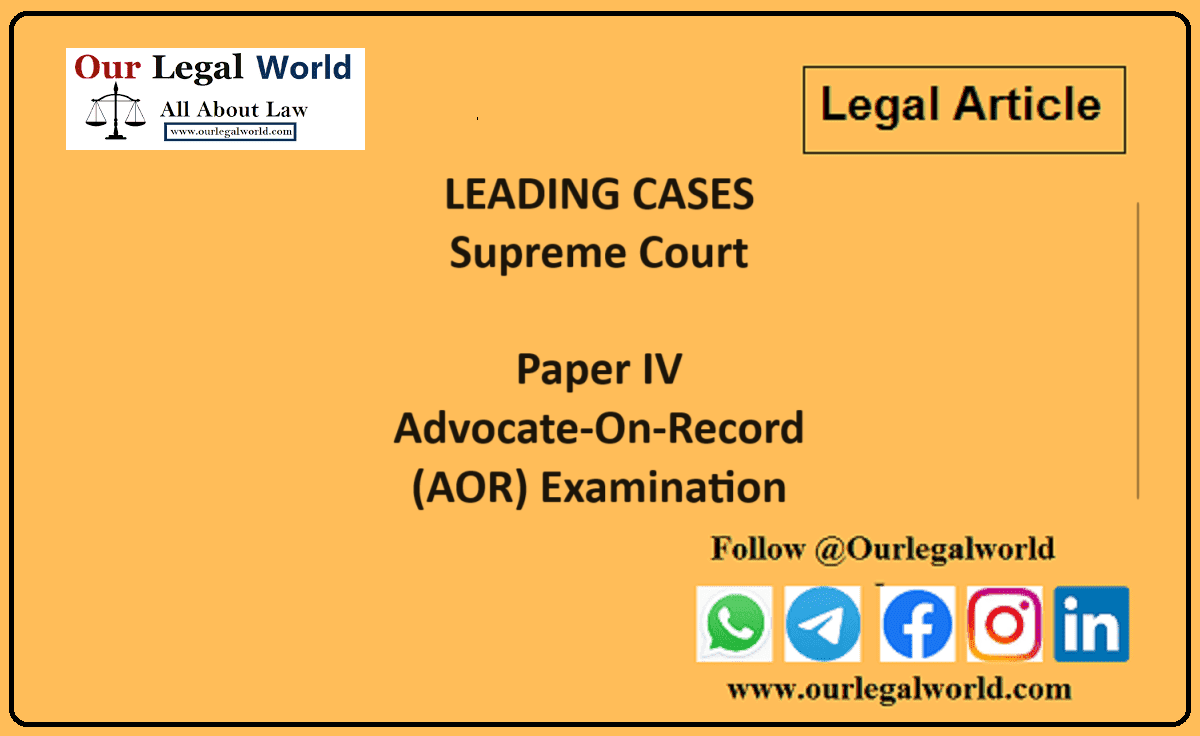Analytical or Positivist theory Of Jurisprudence
Introduction
Analytical or positivist theory is the most powerful school of jurisprudence, dealing with law as it exists in its present form. The advocates of this school considered that the most important aspect of the law is its relation to the state. It systematic analysis of legal concepts. Legal positivism is to see and understand the law as it is created and necessary to accept it, without going into the question of justice or injustice and the question of good and evil, without knowing the past and future of the law. It’s called a positive school because it focuses on positum (Latin ) which means law as it is not law as it ought to be. It’s also considered an Austinian school because it’s founded by John Austin.
Legal positivism is the dominant theory, although there are a growing number of critics, who offer their own interpretation. There are many jurists who describe the Analytical school but the definitions given by Jeremy Bentham and john Austin are very important.
The chief exponent of the Analytical school of jurisprudence –
- Jeremy Bentham( 1748- 1832)-
INTRODUCTION
• Jeremy Bentham was an English jurist, philosopher and legal and social reformer and heralded a New Era in the history of legal thought in England.
• He is considered to be the founder of positivism in the modern sense of the item.
• He was a talented person having the capacity and the acumen of a jurist and logician.
• Dicey in his book Law and Public Opinion in 19 Century scratched bantam’s ideas about individualism law and legal Reform which have affected the growth of English law in a positive direction.
Jeremy Bentham’s Theory of Analytical School-
• He is known as today mainly for his moral philosophy, especially his theory of utilitarianism, which evaluates action based on his results. A particularly relevant outcome is the overall happiness created for all affected by the action.
• According to him, happiness is thus, a matter of experiencing pleasure and lack of pain .
• His most important theoretical work is the introduction to the principles of morals and legislation (1789) , in which he said is the greatest pleasure principle described and developed. He rejected natural rights.
The concept of Bentham law is an imperative which means that the law is an assembly of signs, declaring a state to be violated or adopted by the sovereign. He believed that every law can be considered in view of different aspects –
1. Source- Law is the will of the sovereign.
2. subject – person or thing.
3. Object – function, position,
4. Extent – law covers a portion of land on which act is done.
5. Aspect- Instructions or approvals can be.
6. Force- to create an effect
7. Remedial state appendages- something attached with the state.
8. expression – desire.
Bentham’s theory about Utilitarian Individualism–
• This principle is based of Laissez-Faire’ which means – minimal interference of the state in the economic activities of the individual. And this should result in the happiness and welfare of the society.
• According to Bentham, the purpose of law is to bring happiness and avoid pain (the principle of pain and pleasure) the legislation came to an end on the greatest happiness of the greatest number.
• According to this principle, the true purpose of law is to fulfill the principle of utility. The law developed legislation based on the utility of individuals.
Bentham defined it in two words:
• To provide the pleasure property/tendency of an object, to provide some pleasure, profit, benefit, or happiness.
• To prevent pain, to prevent mischief, pain, evil or sorrow.
• Bentham is the biggest exponent of utilitarianism. It is merely an object to snatch happiness and to relieve pain. The principle of utility subjects today inspires everything. He defines utility as expressing the right of property or the tendency to prevent some evil or to do something good.
Also Read: Salmond Pigeon Hole Theory of law of Torts
The main function of Bentham’s theory:- Bentham seeks to ensure community happiness by achieving four key goals:
• Providing substance.
• To produce fullness (abundance).
• To favor equality.
• To maintain security.
Criticism against Bentham’s theory-
• Bentham’s theory has its own weakness. The main weakness of Bentham’s work, Freedman says – is the effect of mixing materialism with idealism. His theory fails to balance individual interference with the interest of the community.
• Happiness and pain cannot be the ultimate test of the sufficiency of law, what gives happiness cannot be called good law.
• The Legislature should have specifically legislated to remove any obstacle to personal freedom, but in later times, the law was used to restrict the freedom of individuals in an economic matter.
• The morality of the principle of greatest happiness of the greatest number is neither universally accepted nor received as a logical necessity.
2. John Austin- (1790-1859)
INTRODUCTION-
• He is the founder of the Analytical school. He is considered to be the founder of English jurisprudence.
• He was born in 1790 and till 1812 he served as an army officer for a total duration of 5 years.
• After his graduation he joined the nearly-founded Benthamite University College as a professor of law and then in 1826, he was elevated to the chair of jurisprudence in the University of London.
• He also introduced the scientific system of English law. The first six lectures he gave at the University of London were the most influential part of his work.
• His lecture was published in 1832 under the book The Province of Jurisprudence determined. In these lectures, he explained the nature of law, and the source of law and presented an analysis of the English legal system.
• Austin applied the analytical method and he defined his field of study as simply positive law. Therefore this school established by him is called Analytic or Positivism or Analytic Positivism.
Austin’s theory of Analytical school–
• Austin defined law as –“ A rule laid down for the guidance of an intelligent being by an intelligent being having power over him. “
• Austin defines law in two parts:
- Proper law .
- Improper law.
• Then again the proper law is divided into two parts:
(A) God’s law – The law prescribed by God for men
(b) Human law – the law prescribed by men to men.
• Human law is divided into two heads:
(1) Positive law (Positive Rule): These are laws that are set by political superiors or men who do not act as political superiors, but rather in the observance of the legal rights conferred by political superiors. Only these are appropriate subjects of jurisprudence of law.
(2) Positive morality (Other laws) : – Laws that are set by political superiors (individuals who are not acting in the capacity or character of political superiors) or men who follow legal rights.
• Austin went on to differentiate between what he said –
(1) “The law is properly called.- ” Laws are properly called: they are laws which are commands. The divine laws or laws of God, determined by God for his man, are the so-called proper laws.
(2) “The law is called improperly”- . Laws are unreasonably so: Laws that are not commanded. for example. According to the laws of fashion, law by analogy, law by metaphor i.e. law of gravity.
• Positive law is the subject of jurisprudence: Austin maintains that only positive law is the proper subject of jurisprudence – law only and strictly so-called or law is determined by political superiors for political inferiority. Jurisprudence is the general science of positive law.
• According to Austin, the law is a sovereign’s command that imposes a duty that is enforceable by sanction . The study and analysis of positive law is based on a law that is strictly applied on political inferiors by political superiors.
The basic features of command doctrine are:
- Command (by political superiors).
- Duty (levy of political inferiority).
- Sanction .
- Sovereignty.
• Command – An order/ command is a form of an order issued by an inferior and is not a wish, a wish, or a request, with no choice or option to follow.
• Sanction– If the law is not followed, there is a fear of punishment.
• Duty – Person to whom the order is given has a legal duty to obey it .Punishment is given in case of disobedience.
Principle of sovereignty-
Every positive law (or so-called each law – so-called) is determined by a sovereign person or a sovereign body to be a member or member of an independent political society, with the person or body being sovereign or supreme. In other words, a person or persons is determined by the sovereign who is subject to its author. The relationship between the superior and the rest of the given society is sovereign and subject. The generality of its member must be in the habit of obedience to determine the general superior. Furthermore, the power of the sovereign is incapable of legal limitation.
The exception to the commands:
Austin accepts 3 types of laws, although the commands may not be included within the previews of jurisprudence through the exception –
- Declaratory laws: passed only to explain the laws that are already in force.
2. Rules for repeal – cancellation of a command.
3. Laws of imperfect obligation– They are not considered orders/commands because they lack sanction.
3. sanction alone is not only the means to induce obedience.
4. Austin’s theory treats international law as morality.
5. command overemphasized.
6. The relation between law and morality is completely ignored,
In addition to these criticisms, Austin’s contribution to the law has been much praised by many thinkers such as Bentham JS Mill etc. His theory lie in expressing of separation of law and morality. Therefore, we can say that Austin made a great contribution to the law of jurisprudence.
According to Holland – He is considered another supporter of Analytical school and follower of Austin. He differs from Austin in its interpretation of positive law. For him , Not all laws are command of sovereign . Instead, he defines law as the rules of external human action and is enforced by a sovereign political authority.
Conclusion:
• Finally, it can be concluded that, the analytical school of jurisprudence assumes that the most important aspect of law is its relationship with the state.
• The school is also called a compulsory school. General jurisprudence is the method of law that considers law as a body of fundamentally interrelated principles and not a large selection of regimes with a parochial law of nature.
• It seeks to define all laws, classifies all laws, discovers the essential features of every law and obtains a yardstick by which all laws can be measured.
Reference–
- www.ipleader.in
- Www.leaglbites.com
- Dr. M.K. Das , an introduction (legal theory )
- Dr. B.N. Mani Tripathi , jurisprudence and legal theory.
- Www.judicialnotes.com
- Www.Researchgate.com







![Tax Law Internship at Legum Attorney [Chamber of Ashish Panday], Delhi : Apply by 15th May 2025](https://www.ourlegalworld.com/wp-content/uploads/2025/05/IMG_0113-min.png)

